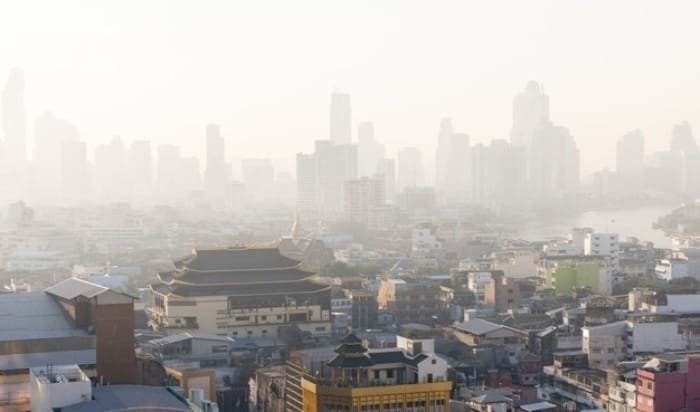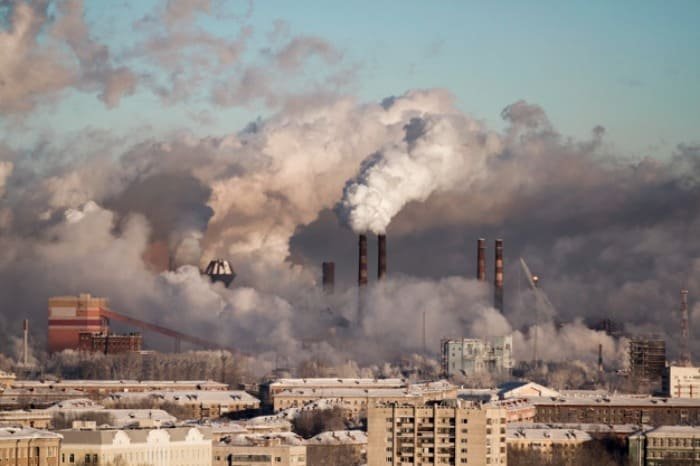ImpactsAir PollutionOn Overall Physical and Mental Health
Even healthy individuals can experience health issues due to air pollution, such as respiratory discomfort and breathing problems during outdoor activities. Air pollution not only threatens physical health but also contributes todepression, aggression,drowsiness,hyperactivityand other mental disorders.
The real danger of harmful effects on your current health conditions depends on the type and concentration of pollution and the time spent exposed to polluted air. High levels of contaminated air can lead to immediate health problems, which we will address in this section of healthSelMagz.

The Effects of Air Pollution on the Body
These effects include:
- Severe cardiovascular and respiratory diseases.
- Additional stress on the lungs and heart, which must work harder to provide sufficient oxygen to the body.Cellular damage to the respiratory system.
- The Permanent Effects of Air Pollution on Public Health
Long-term exposure to polluted air can lead to permanent health effects, such as:
Accelerating lung aging
- Loss of lung capacity and reduced functioning
- Progression of diseases like asthma,
- bronchitis, emphysema (a type of lung disease), and even cancer.Shortened lifespan
- Air pollution causes miscarriages

andshould be noted that lead, in addition to impacting individual health, can lead to cancer, miscarriages, and mental illnesses, for example, negatively affecting nervous system function, causing severe headaches and memory loss.Air pollution, particularly from lead due to improper vehicle fuel, increases the likelihood of children being born with defects,
autism
and hyperactivity.Lead poisoning also causes increased mental disorders, permanent memory loss, trembling diseases, and madness.What is the relationship between air pollution and aggression?
impatience
and a lack ofanger control, and air pollution can also cause a decrease in energy and induce drowsiness, leading to aggression in individuals.Disorders such as aggression and depression, concentration issues, and slower mental performance occur as a result of decreased oxygen supply to the brain. All these factors create problems in social and work situations.The Negative Impact of Air Pollution on Personality
Air pollution heavily influences individuals’ personalities and can transform an extrovert into an introvert. Depressed individuals always perceive life as contaminated and struggle to be social and lively like they used to be. Reduced oxygen due to polluted air interferes with brain function, causing individuals to lose their social skills and suffer from forgetfulness, leading to

Alzheimer’s disease
in old age.Depression in more severe cases occurs due to air pollutionAir pollution weakens the decision-making power of depressed individuals, exacerbating their depression, leading them to feel tired, impatient, and exhausted. Air pollution worsens the conditions of anxious and depressed individuals, who, in addition to stress, also suffer from
palpitations
andshortness of breath.Air pollution negatively impacts the symptoms of patientswith OCDand causes them to experience increased anxiety, feeling sick, and suffering from a condition known as “hypochondria.”
Diseases Associated with Air PollutionThe diseases that are more sensitive to serious health problems caused by air pollution include:Cardiovascular diseases, especially aortic disease and congestive heart failure.

Lung diseases, particularly asthma, emphysema, and chronic obstructive pulmonary disease.
Who is Most Affected by Air Pollution?
- Pregnant women.
- Workers who operate in open environments.
Older adults and the elderly.
- Children under the age of 14.
- Athletes in training.
- Individuals with good physical health outdoors.
- Even those in vulnerable groups may experience health problems, even with decreased exposure to contaminated air, and may suffer more severe complications.
- A Look at Temperature Inversions and Their Harmful Consequences
- A temperature inversion occurs when volatile organic compounds and nitrogen oxides react with ultraviolet rays from the sun. Primary sources of nitrogen oxides and volatile organic compounds are mobile sources such as cars, trucks, buses, construction and agricultural equipment. Temperature inversions peak in the afternoon and early evening, with the worst occurring during the summer months. This problem is a strong trigger that causes airway constriction and increased workload for the respiratory system to provide more oxygen.
- Health Issues

The Temperature Inversion Phenomenon
can also cause other health problems such as:
Severe respiratory diseases such as emphysema, bronchitis, asthma, lung injuries, and even subsequent symptoms likecoughing
, sore throat, wheezing, chest pain, dry throat,
- headachesandnausea.Low resistance to infection and extreme fatigue.Poor performance in athletes.The Impact of Solid Particles and Flammable Smoke on HealthSolid particles are a complex mixture that can contain soot, smoke, metals, nitrates, sulfates, dust, water, and tire rubber. These particles can be released directly from smoke produced by fires or formed from the reaction of gases like nitrogen oxides in the atmosphere. The size of these particles directly relates to their potential to cause health issues. Smaller particles lead to more severe problems because they can pass through the body’s natural immune barriers and penetrate deep into the lungs and especially into blood vessels. Contact with these particles affects both your lungs and heart.
- Risks of Long-term Exposure to Solid Particles
- Exposure to these particles over a long period can lead to significant health issues including:

Increased respiratory symptoms such as airway irritation, coughing, or difficult breathing, reduced lung performance, severe asthma, progression of aortic disease in children, chronic bronchitis, chronic obstructive pulmonary disease.
Irregular heartbeat, non-fatal heart attacks, and early death in patients with lung and heart diseases such as
lung cancer.
Risks of Short-term Exposure to Solid ParticlesWorsening of lung diseases can lead to asthma attacks and acute bronchitis.
- Increased susceptibility to respiratory infections
- Heart attacks and irregular heartbeats in individuals with heart problemsEye, nose, and throat irritation; coughing, chest tightness, and shortness of breath.Air PollutionHealth Effects of Air Pollution
Effects of Air Pollution
- The Permanent Effects of Air Pollution on Individual Health
- Aggression
- The Impact of Air Pollution on Anger Control
- Depression







